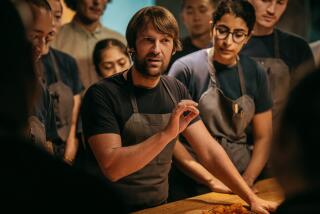A little inconvenience is one thing, but life without chocolate?
For the month of June, I am only buying food that has never left a 100-mile radius of my house and, for the most part, it has been pretty great. The produce tastes delicious, I constantly meet people passionate about food, and I am stepping out of my comfort zone as a cook. Yet, there are times when being a locavore is a complete pain.
Yes, it is frustrating not to be able to go out to eat and to have to grill each farmer to pinpoint where everything was grown, but I never anticipated the biggest challenges. As a committed and happy chocoholic, I enjoy a daily morsel of chocolate. The word “no” seems to leave my vocabulary whenever chocolate is offered, but I have been forced to give up my habit, as cacao is not grown commercially in the continental United States -- and certainly not in California.
Not only has any and all chocolate been cut from my diet, but sugar cane is also not grown anywhere nearby; honey is the only readily available, local sweetener. I have been trying to take a “what doesn’t kill you makes you stronger” approach to this limited dessert option, but I find myself counting down the days to when I can buy another chocolate bar.
The other big difficulty is the amount of planning that now goes into dinner. My fridge or pantry is often lacking an item that I need, so running out to the store in the middle of a recipe was a fairly common occurrence. I go to the market at least every other day to grab a carton of milk or pick up some apples that were on sale.
Now I am limited to the surrounding farmers markets, which means shopping only once or twice a week, and I am stuck if I forget something. Before shopping this week, I made a meal plan for seven days of lunches and dinners to ensure I didn’t run out of food or overlook a crucial ingredient, but I soon deviated from this organized approach.
Last night, I was planning on making fresh pasta out of flour from the wonderful New Vineland Bakery in Santa Barbara and eggs from Trancas Canyon Nursery to toss with Soledad Goats’ goat cheese and local tomatoes, but I could not find my seldom-used pasta maker.
I sent out a pasta machine search party (meaning my dad, who has uncanny finding abilities) and dug through my pantry to find something else for dinner. I had local, dried fava beans that should have been left to soak overnight, but I quickly threw them onto the stove top to boil anyway, hoping they would be ready before midnight.
At 6 p.m., the beans were still rock-hard and the pasta machine was nowhere to be found. Normally, I would have jaunted over to the store, bought a chicken or some vegetables, and whipped up a quick dinner. Now, however, I was at the mercy of an unforgiving pot of beans.
In the end, everything was fine — the beans eventually cooked through and by 9:30 we devoured a late dinner of fava and beet green soup — but I realized how much I always relied on a safety net of conveniently available food. If I misplace a gadget or if a recipe is bunk, there are endless options at the grocery store down the block, a convenience that disappears when eating locally.
For my monthlong experiment, I went cold turkey to examine local eating, but, in reality, a local-only diet is difficult to sustain. A focus on local food is important for a long list of reasons, but who wants to live without chocolate?
ALSO:
The six commandments of great grilling
Raw vegetables and olive oil -- pinzimonio
Local uni -- there’s a restaurant that specializes in it
More to Read
Eat your way across L.A.
Get our weekly Tasting Notes newsletter for reviews, news and more.
You may occasionally receive promotional content from the Los Angeles Times.







